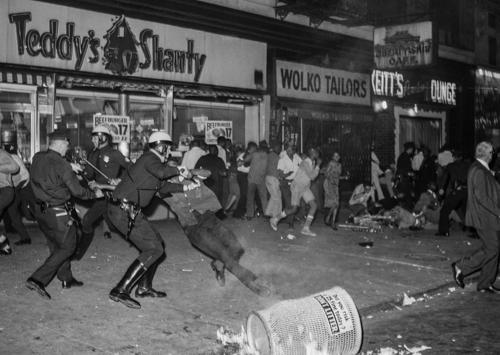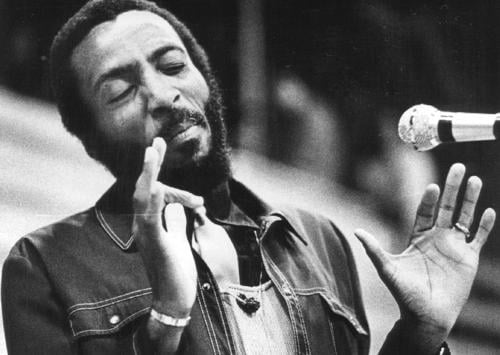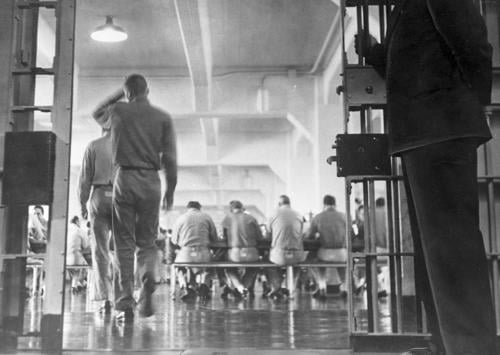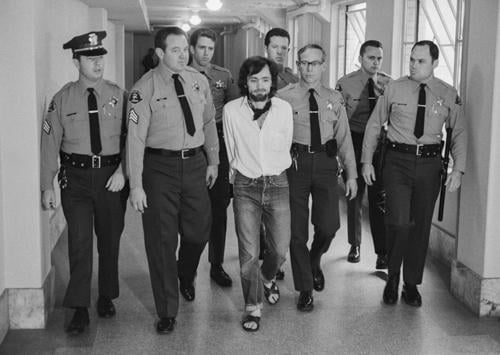Listen to New Voices on Studs Terkel our partnership with 826CHI-here! Read the Story
Showing 16 - 30 of 99 results
-
Ramsey Clark discusses his book “Crime in America”
Oct. 14, 1970 Interviewing author and former Attorney General Ramsey Clark. He discusses law, crime, and violence in the United States. Content Warning: This conversation includes racially and/or culturally derogatory language and/or negative depictions of Black and Indigenous people of color, women, and LGBTQI+ individuals. Rather than remove this content, we present it in the context of twentieth-century social history to acknowledge and learn from its impact and to inspire awareness and discussion.
-
Ralph McGehee reads from and discusses his book "Deadly Deceits"
May. 11, 1983 Discussing the book "Deadly deceits: my twenty five years in the C.I.A" with the author Ralph McGehee.
-
Philip M. Stern discusses his new book "Lawyers on Trial"
Dec. 5, 1980 After enrolling in law school at age 49, Stern breaks down the double-standards and monopoly power of the legal profession.
-
Philip Hilts discusses his book "Behavior Mod"
Oct. 3, 1974 Philip Hilts, an author and journalist, discusses behavior modification and it advantages and dangers. He delves into B. F. Skinner and Ivan Pavlov's work and explains how behavior modification is used today. Hilts discusses cases used in prisons, schools, and workplaces. Hilts also talks about typical medications given to children who are said to experience hyperactivity.
-
Paul Chevigny discusses his book "Police Power"
According to Paul Chevigny’s book, “Police Power: Police Abuses in New York," disobeying the police is what precipitated violence. Chevigny explained some of the police felt if they had to deal with the undesirables, whether they were criminals or not, anything goes on the street to get these guys and anything goes in court to make a conviction stick.
-
Patrick Murphy discusses the book, "Our Kindly Parent--The State".
Aug. 23, 1974 Studs Terkel discusses the book, "Our Kindly Parent--The State," and interviews the author Patrick Murphy. They discuss the inadequate juvenile justice and reform system extensively. Includes an excerpt from the interview with Lisa Richette, author of "Throw away children."
-
Patricia Bosworth discusses her book “Anything Your Little Heart Desires: A Portrait of an American Family”
Jun. 24, 1997 Author and actor Patricia Bosworth discusses her book “Anything your Little Heart Desires,” which details her upbringing and her father’s life as a lawyer.
-
Panel at University of Chicago Law School discuss ending capital punishment, part 3
Feb. 19, 1965 Dick Gregory satirizes capital punishment in the United States, calls for the churches to take action, and talks about potential actions from "demonstrators." Other panel members answer audience questions (Father James Jones, Norval Morris, Hans W. Mattick, and Arthur Wineberg). Hosted by the University of Chicago. (Part 3 of 3)
-
P. D. James discusses her award-winning book "A Taste for Death"
Oct. 31, 1986 For the first time, P. D. James introduces a female detective, Kate, to work with Commander Adam Dalgliesh in her book, "A Taste for Death". James explained how Dalgliesh needed to continue to be an interesting character to write about. She further explained, if she got bored with writing about his character, then the audience would be bored reading about him.
-
Nelson Algren, Nathan Kantrowitz, and David Maurer discuss language and characteristics of the criminal underworld
Jan. 29, 1967 Nelson Algren, Nathan Kantrowitz, and David Maurer discuss language and criminal subculture, including the development of institutional slang at different prisons, the nature of drug addiction and its influence on criminal language and vocabulary, and the myth of the criminal mind. Includes an Interview with an inmate at a Chicago prison.
-
Nelson Algren discusses capital punishment
1965 Discussing capital punishment with author Nelson Algren. Includes interviews with William (Bill) Witherspoon, a death row inmate; Jack Johnson, warden of Cook County Jail; and an [unidentified woman] who marched in protest at the execution of James Dukes in 1962.
-
Mr Bugliosi and Mr. Gentry discuss, "Helter Skelter: The True Story of the Manson Murders"
Nov. 6, 1974 Mr Bugliosi and Mr. Gentry discuss, "Helter Skelter: The True Story of the Manson Murders,". Bugliosi was the prosecutor in the case against the Manson "family" for the murders of Sharon Tate and others. The interview opens with "Home is where you are happy" performed by Charles Manson and an excerpt of Catherine Shur Manson's sister talking about her brother. They speak in depth on the Manson "family" and the key players in the murders; Susan Atkins, Steve Grogan, Linda Kasabian, Patricia Krenwinkel, Leslie Van Houten and Charles Watson.
-
Morris Yanoff discusses his book "Where is Joey?"
Apr. 14, 1982 "Where is Joey?: Lost Among the Hare Krishnas" is about Morris Yanoff's twelve-year-old grandson, Joey. The book covers the law, parents' rights and the ordeal of the seventeen month-long search for Yanoff's grandson in California.
-
Michael Rosenberg Meeropol discusses his book, "We Are Your Sons: The Legacy of Ethel and Julius Rosenberg"
May. 29, 1975 Michael Rosenberg Meeropol discusses his book, ""We Are Your Sons: The Legacy of Ethel and Julius Rosenberg," and talks about his life growing up in the shadow of the execution of his parents. He recalls his memories leading up to their arrest and trial and the legal battle for him and his brother, Robert, to be adopted. He also talks about growing up ashamed of his last name, but eventually coming to terms with his identity and starting the fight for his parents' exoneration.






